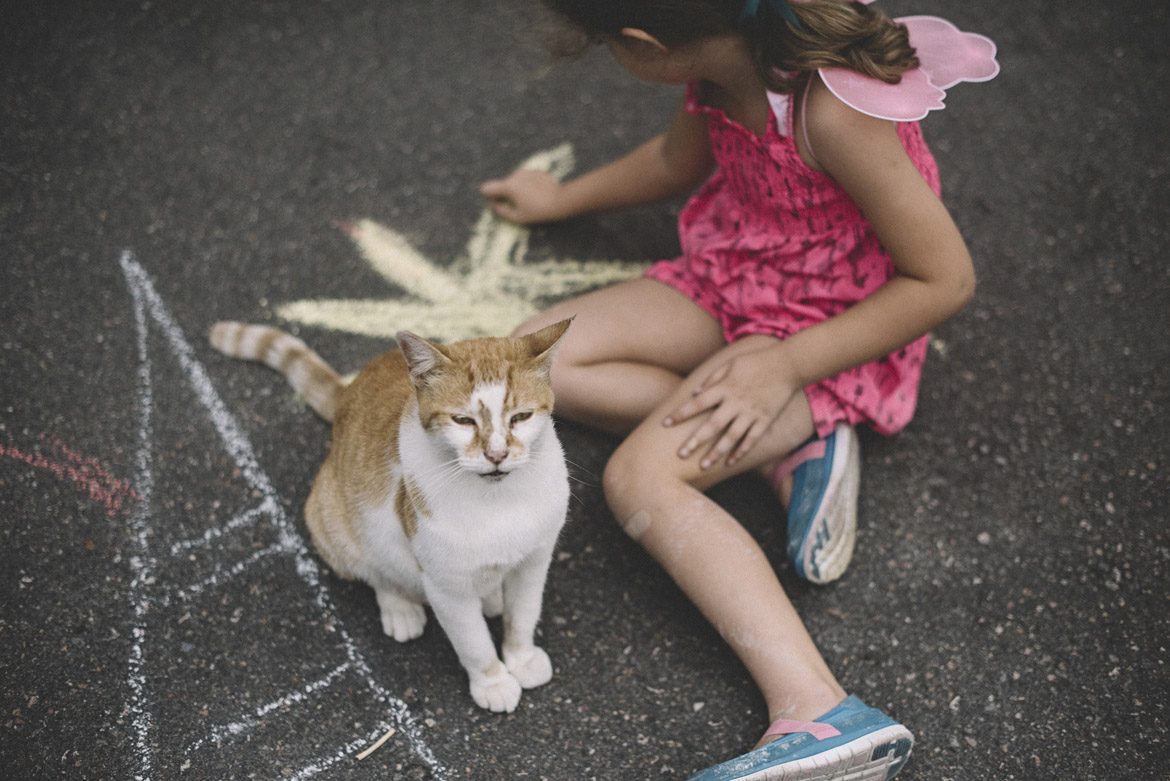By Kelly Eden
Growing up, my dad never said “no” to a pet. As a result, my sisters and I ended up with over 14 pets at one stage. Yes, all at the same time. We had everything from rats to birds, frogs to lizards. Perhaps he was a bit nuts letting us have so many pets (sorry Dad), but perhaps – raising three highly sensitive girls on his own – he was on to something.
The research on the benefits of pets is overwhelmingly positive. Companion animals appear to add psychological and physical health benefits to owners, as well as help in many areas of a child’s development. In fact, there are so many positives to owning pets that it’s hard to cover them all in one blog post. So – raising two highly sensitive daughters myself – I’m going to narrow it down to how pets specifically benefit this 15-20% of the population.
Seriously? You want a pet?
Initially, I was pretty reluctant to get pets for my girls. For a start they take a lot of work; some more than others. I remember spending hours cleaning out animal cages, tanks and bedding areas. All that poop! Ugh.
And then there’s the issue of good animal ownership. I hate seeing animals being mistreated and, sometimes, little kids can be just plain nasty. Watching my friend’s preschooler dress her tiny dog in hundreds of plastic necklaces and princess frills and then cart it around making it “dance” is one of my most traumatic memories. (I might be exaggerating slightly about the level of trauma, but it wasn’t nice).
I was worried I’d spend my whole day telling the children off for not being careful with their pets. It was stressful enough getting the four year old to be careful with her baby sister let alone a mouse she could actually crush.
So I let them get a snail. Actually, three snails.
They loved their snails, played with them, raced them, feed them, helped clean out the cage and learnt about them.
And yes – one got squashed. And it was traumatic. But, it was just a snail – and the four year old learnt a VERY unforgettable lesson about gentleness. Surprisingly, she also learnt about the grieving process.
Mummy, do pets go to heaven?
And this was the other reason I was reluctant to get pets. Pets don’t live that long – not even dogs. Inevitably, they die and it’s painful. Highly Sensitive People are wired to feel emotions super strongly and so the (many) deaths of my (many) pets lingered as powerful, painful memories and I wasn’t sure I could cope with taking my kids through that process.
But after the dropped snail incident the four-year-old seemed to show resilience in the grief process. She cried – loud, dramatic, rolling on the floor crying as only four-year-olds can, and then announced “I feel better now.” So we progressed from snails to rabbits. When I discovered one morning before work that one (aptly named Angel) had died, I think I struggled with the idea of telling the kids more than was actually necessary. They were sad. They cried. We buried the rabbit. And they moved on.
As I discovered, if you help them through it, the passing of a pet can actually be a great opportunity for children learn about the grief process and that we can and do recover!
As I discovered, if you help them through it, the passing of a pet can actually be a great opportunity for children learn about the grief process and that we can and do recover!
For HSP this is especially important as HSP’s strong emotions can be overwhelming at times. Highly Sensitive Children need opportunities to learn to manage (but not suppress) their strong emotions and find ways to soothe themselves, like listening to an audiobook or wrapping up tight in a blanket.
They need to know that grief looks different in different people and that there isn’t a right way to feel – that all feelings are totally normal. Highly Sensitive Children can sometimes be told they are overreacting or being dramatic. When my daughter’s snail died I could have said “Get over it, it’s just a snail.” But by accepting their strong feelings we are telling our kids that they are OK and that we are there to support them in learning to manage their emotions.











